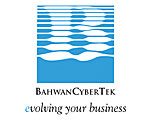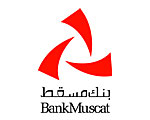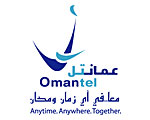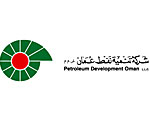
Table Talk is a roundtable discussion with some of the best brains in the new world of work. It's a conversation among change agents from some of Oman's biggest and best-known organisations; leaders from young, fast-growing companies; business thinkers from across the country and across the economy. Table Talk explores some answers, hatches new ideas and even raises a few new questions.
We don't intend Table Talk to be a definitive guide for building Oman's ICT sector. Rather, we hope it will be food for thought, a starting point and hopefully, a catalyst for future collaborative discussions on the topic. Indeed, by working together, local business and government leaders can bring additional investment capital to Oman; attract outside companies; expand a youthful and trained workforce; raise a strong crop of future executives; foster entrepreneurship; create more start-ups; and help existing companies expand. While many of the concepts within this column are familiar, rarely do we think of them collectively on a macro scale that exceeds our individual realms.
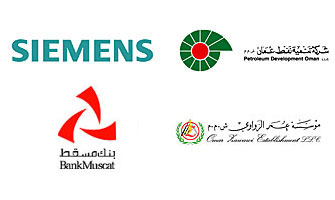
DO: In order to stimulate an entrepreneurial environment, Oman needs to create an efficient technology transfer management process and build common physical space for academic/industry partnerships, how can this best be achieved?
SM: Oman's on a solid track with the industrial areas under the auspices of PEIE, and the ICT sector is well represented by Knowledge Oasis Muscat (KOM). Indeed, KOM has some great facilities and tenants, plus the business incubator programme - The Knowledge Mine. Groups such as the German-Omani Joint Commission are also a fantastic instrument for building new and maintaining existing academic/industry partnerships.
PDO: These can be achieved by creating the right conditions. The government needs to encourage e-literacy to close the digital divide and attract capital markets, as well as put in place a strong legal and technological infrastructure.
BM: I think it's still too premature to consider the benefits of technology transfer between industry/academia and the building of common physical spaces. We ( Oman) need to considerably hone our people skills in the IT arena first, so as to create a body of human capital capable of appreciating and operating at the global level, before any meaningful partnerships can emerge. The country is still very much on a learning curve when it comes to Information Technology, with a greater need for flow of intellectual capital into Oman, rather than within Oman.
OZ: This could be achieved through "clusters" of emerging excellence involving academics, business personnel to technocrats. Such networking and partnerships, on a 360 degrees basis, would be beneficial and productive for all.
DO: Oman's ICT sector, academia and government must work more closely together to ensure that appropriate training opportunities align with business needs and future societal demands, how do you suggest we go about this?
SM: A close relationship between schools, vocational training institutes, tertiary education and ICT corporates is essential. For example, students need job placement opportunities - Siemens offers such placements. Through our programme, students get an insight into the practical side of the working world.
PDO: Nurturing the right skills is fundamental to success. These groups must work very closely together to ensure skills developed match both present as well as future requirements. A relatively easy way to achieve this is by combining these forces to form an advisory/steering body that oversees and directs these training programmes.
BM: Educational institutions must create a win-win situation for ICT companies, if they want these companies to take a real interest in their students. Institutions normally adopt a short-sighted approach to professional training and send their students to organisations as interns / summer trainees. Interns / trainees require a considerable amount of individual training if they are really to benefit from such exposures, this is something most organisations can ill afford. They should, instead, spend more time in profiling the strengths of each student, and proactively suggest the initiation of projects, which are specific to a student and of use to the ICT concerned. Students could ideally carry out 'research' projects, which take time and involve Internet searches, phone calls, visits and evaluations. Educational institutions will have to change the way they look at training, if they want ICTs to consider their requests seriously.
OZ: Dialogue between education and the ICT community is critical. One way forward is to create task-based working groups which can pinpoint the areas of growth/interest and have brainstorming sessions amongst them - this would lead to a consensus on a recommended action plan.
DO: The general consensus is that access to capital is absolutely crucial for sustained growth. How do we attract bank and VC monies to OmanÕs ICT sector?
SM: Again, PEIE is playing a major role here. Through KOM and the Knowledge Mine, capital could be attracted. Programmes like SANAD could also play an important role in this regard.
PDO: There are many successful examples from around the world to learn from, such as the success of the Multimedia Super Corridor in Malaysia and the UK's Cambridge Hi-tech cluster. Their secret to success must be used as a reference point for us but we must also view them within the context of Oman. However, in each one of these examples several common factors emerge, such as:
» Firm government backing and support.
» World class infrastructure, that are scalable and agile enough to cater for future growth.
» Competitive costs of doing business (globally competitive telecommunication tariffs).
» Accelerated human resources training and development.
» Unrestricted access to local and foreign knowledge workers.
» Competitive financial incentives to the investors (e.g. no income tax for x number of years).
BM: In the context of Oman, it seems that the problem is hardly the lack of capital, but the lack of market size. There are enough businessmen willing to invest in start-up ventures, provided they are assured that such businesses can succeed. However, integral to the growth and success of such business ventures are two things: availability of skilled human resources and a reasonable market size: While Oman has a large number of educated nationals - who are available at low cost - with strong Arabic skills and the willingness to work hard and learn, the fact of the matter is, it still needs to develop its human resources 'seed capital' in the information technology arena before it becomes a force to reckon with. Till then, the country will have to rely on international expertise, which will be 'imported' at a cost.
Sustained growth in ICT, as in the other industries in Oman, depends on organisations being able to serve the entire regional market, and not only Oman. This may be possible if the communications infrastructure in Oman is strengthened. However, it won't be enough to strengthen infrastructure just on tech parks, the entire country will require a makeover.
OZ: Money always follows viable ideas, hence, the qualitative aspects of the knowledge based workforce, is of the paramount importance. In a fast changing and "mobile" global economy, there's no dearth of funds for the right ICT business opportunity.
DO: Do you think Oman lacks enough available capital from multiple sources to support rapid ICT growth?
SM: I believe enough capital is available. It has to be channelled and then exploited.
PDO: Currently, yes
BM: No. The country today needs more local ICT companies that have the vision and courage to think big and expand out of Oman, not necessarily additional capital.
OZ: No.
DO: Are Oman-based ICT firms too narrow-minded or near-sighted to see the national and global potential of their businesses? Is it time for Omani companies to boldly take their companies to the next level? If so, how's this to be done?
SM: Competition is fierce in this sector. Oman-based ICT firms need to find segments in the market in which they can be successful regionally and eventually globally.
PDO: The ICT business is global, and so in order to survive, local companies will have to compete globally and demonstrate competitiveness on cost and quality. There are a few examples of Omani companies that have successfully secured business on an international level and they've clearly benefited from the experience.
BM: Yes. Emphatically! Follow the example of progressive local organisations that are doing well.
OZ: No. I believe there's a greater awareness and understanding in the ICT community vis-a-vis broadening horizons, they realise that if they don't change then survival could come into question.
DO: Following on from the last question. Thanks to Tim Berners-Lee and the invention of the World Wide Web, the world is a much smaller place today than it otherwise would have been. Yet very few businesses throughout the world have taken advantage of this. They continue to see things as they were and don't look beyond what they know. Instead of leveraging the technology to expand their business prospects throughout the world, they merely focus on servicing the markets they already have and know. How do we get businesses to think more seriously about this?
SM: The deployment of broadband access - through wireline or wireless networks - is an essential precondition. Further services and applications must be made available at affordable rates for effective e-business to develop. I think a lot of Oman-based entrepreneurs are already exploring the worldwide communications medias for business. But we shouldn't forget security, fraud prevention and protection of intellectual property rights, these issues have to be addressed in an effective way.
PDO: This is a difficult question! Any successful company, in any sector, will have harnessed the power of technology to improve the way they work or to reach previously unaccessible markets, reduce costs and so on. These examples are ample and widely publicised. Ultimately, it's the people in these businesses that need to spot the opportunities and go after them.
BM: Global marketing via the Internet is now a reality with sales increasing in leaps and bounds, every year. Visionary organisations around the world, and progressive organisations in Oman I am sure, will be the first to take advantage of this new technology-enabled global marketplace. While others will watch their successes and in time, copy them automatically, the need is to profile their successes so that others can learn from their experiences.
OZ: Comparative advantages are key, without these one can't compete globally.
DO: How do we spread a more positive ICT image of Oman to the rest of the world?
SM: DO is a great example, isn't it? We've never had a free, nationwide, bilingual ICT magazine before. This is a positive step in the right direction. It's a great marketing vehicle, one that can be used to spread a positive image of Oman and the folk working in its ICT sector.
PDO: We must first clearly articulate our vision for this sector and where we aim to position ourselves. National strategies and national plans must be aligned towards delivering this vision. Once we demonstrate tangible successes only then should we market and publicise these successes. The image will ultimately be built by these successes.
BM: We must publicise the success stories of our technology companies and profile the use of technology in tech savvy organisations such as PDO, tenants at Knowledge Oasis Muscat and the Banks who partner some of the leading information technology providers from across the world.
OZ: I agree with Siemens, Digital Oman and its portal will help spread a positive image of Oman's ICT community. Combine that with other activities, conferences and workshops for example, and we'll get noticed.
DO: The focus of ICT for development efforts is not on the technology, but on how technology and knowledge can be used to create opportunity. Indeed, ICT can play a vital role as a tool of development, but only if ICT strategies are effectively linked to the broader challenges of economic and social development. What are your thoughts on this?
SM: Without doubt, ICT must contribute to the acceleration of business processes, reduction of costs and enhancement of employee productivity.
PDO: ICT can and has been developed very successfully as an economic sector in its own right to build domestic capacity and boost exports. The real benefit however, lies in its application as an enabler of communication and the exchange of information to create powerful social and economic networks. ICT is already being used highly effectively in many countries - including Oman - to address development needs ranging from improving primary school education, healthcare, creating employment and providing access to traditionally remote communities.
BM: I agree whole-heartedly. The growth of the technology sector not only throws up growth opportunities in the technology space alone, but also in the way it impacts on how businesses and organisations operate.
OZ: KOM and the required "clusters" could assess and create knowledge workers, this would equip Omani students with the right skills and knowledge, skills that could be employed domestically or internationally.
DO: What matters is what you don't know. Because the real source of competitive advantage in any organisation is how it deals with the fact that the people inside it don't know everything they need to know. Ultimately the question is: How does your organisation deal with uncertainty?
SM: 'Siemens - Global Network of Innovation'. Our strap-line and one of our corporate principles answers your question: Our employees are the key to our success. We work together as a global network of knowledge and learning.
PDO: By not wasting time predicting the future state but anticipating a few scenarios that are likely to happen and building agility in the company to be able to react timely and optimally to changing circumstances.
BM: Information technology is primarily a people business and the skills that one's people bring to the table will ultimately play a critical role in determining its success in its chosen space. To be 'future-proof' organisations need to invest in their people: (i) Recruit free thinkers and avid learners (ii) Give them time to explore and travel and keep abreast of the latest global technologies and practices (iii) Recruit new people every year, so as to continually add value and energy to the organisation.
One deals with uncertainty though a variety of ways: (i) By putting in place robust business continuity plans (ii) Building flexible capacity (iii) Recruiting highly adaptable people (iv) Eliminating red-tape (v) Rewarding risk-takers - even though this may result in occasional mishaps! - this is the same quality that will help them react fast when the unexpected happens. Invest, invest and re-invest. If you get the right people, then organisations are ready to deal with most uncertainties.
OZ: Benchmarking consistently and having alternative risk management plans in place will help ensure that uncertainties are minimised and managed properly.

